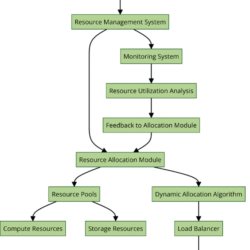
When thinking about how your assets will be distributed upon your death, it is beneficial to understand the function of the terms “probate” and “estate planning. Estate planning creates the legal documents, structures, and plans so that the assets can be addressed more easily or even avoid through the estate planning documents altogether. The mechanics of these two proceedings, their understanding, and the variation between them ease the burden on loved ones as well as family when it comes to unnecessary pressure, delays, and cost.
What Is Probate?
Probate is a court process that takes place after someone dies. The probate process is how the decedent’s will is validated, their debts are paid, and the estate’s balance is distributed to the deceased’s heirs or beneficiaries. When there are no valid wills, the state intestacy laws govern the whole process of determining who inherits the property. The court processes include, but are not limited to, validating the will, appointing an executor to manage the estate’s affairs, resolving disputes about the validity of the will, and the property will pass to the heir or beneficiary, etc. Some things don’t have to go through probate, and there are things that do. And those things that do will have ensuing court processes or hearings. The probate process provides a clear framework and system of accountability – it can also be lengthy and costly.
Understanding Estate Planning
Estate planning is the proactive way to determine the management and distribution of your assets both during your lifetime and after death, including creating important documents like wills, trusts, powers of attorney, and healthcare directives. While probate is the process that occurs after death, estate planning is conducted while you are alive and allows you to have control over your financial legacy. A good estate plan will direct who will receive your property and protect your wishes if you become incapacitated.
Key Differences Between Probate and Estate Planning
The general difference between probate and estate planning is timing and control. “Probate” refers to the court-supervised process that occurs after death. Estate planning refers to the planning that occurs during life to account for the moment. Probate is reactive and deals with the request in response to a person’s death. Estate planning is proactive and prevents issues before they arise. With no probate, the court determines how to distribute assets if there is no plan for what and how they should be distributed. Estate planning makes those decisions for you to avoid court involvement and to control your wishes.
Why Probate Can Be a Burden
Depending on the complexity and size of the estate, there can be considerable fees for lawyers, administrators, and the courts, and delays due to the administrative nature of the process. Your heirs may find the process emotionally taxing as they wait for the court to resolve the estate. If there are disputes with the estate, the process can take even longer and cost even more money. For larger estates or more complicated family situations, probate can take up a lot of time and cost a lot of money—time and money that would otherwise go to your loved ones—and that’s why proper estate planning is one of the most desirable alternatives.
How Estate Planning Helps Avoid Probate
Perhaps the most significant advantage of estate planning is the ability to bypass or to reduce the complexity of probate. To eliminate the necessity of probate for particular asset types, consideration can be given to tools such as revocable living trusts, beneficiary designations on accounts, and joint ownership. A simple use of a trust, for example, could hold property for your heirs, and the trustee can distribute that property according to your instructions immediately upon your death. The savings of time and money, while keeping details of your estate private, are some of the biggest benefits for your heirs.
Essential Documents in Estate Planning
While a will specifies how property will be divided, a trust may manage the property and keep it out of probate. A durable power of attorney allows someone to make financial decisions for you if you become incapacitated. A healthcare directive or living will gives someone guidance about your medical preferences if you cannot communicate them on your own. When combined, these documents protect your wishes while you are alive and after you die. An experienced estate planning attorney will prepare these documents in a manner that is legally enforceable and best suits your specific needs.
The End
If you do not engage in proper estate planning before your death, your estate will likely endure a lengthy court process for distribution, wasting time and money. Taking time now to develop a comprehensive estate plan is an opportunity to protect your family from unnecessary stress and promote your desires. Probate attorney in Gainesville, TX, converts what could be a complex legal undertaking into a smooth and considerate transition of your life’s work.




